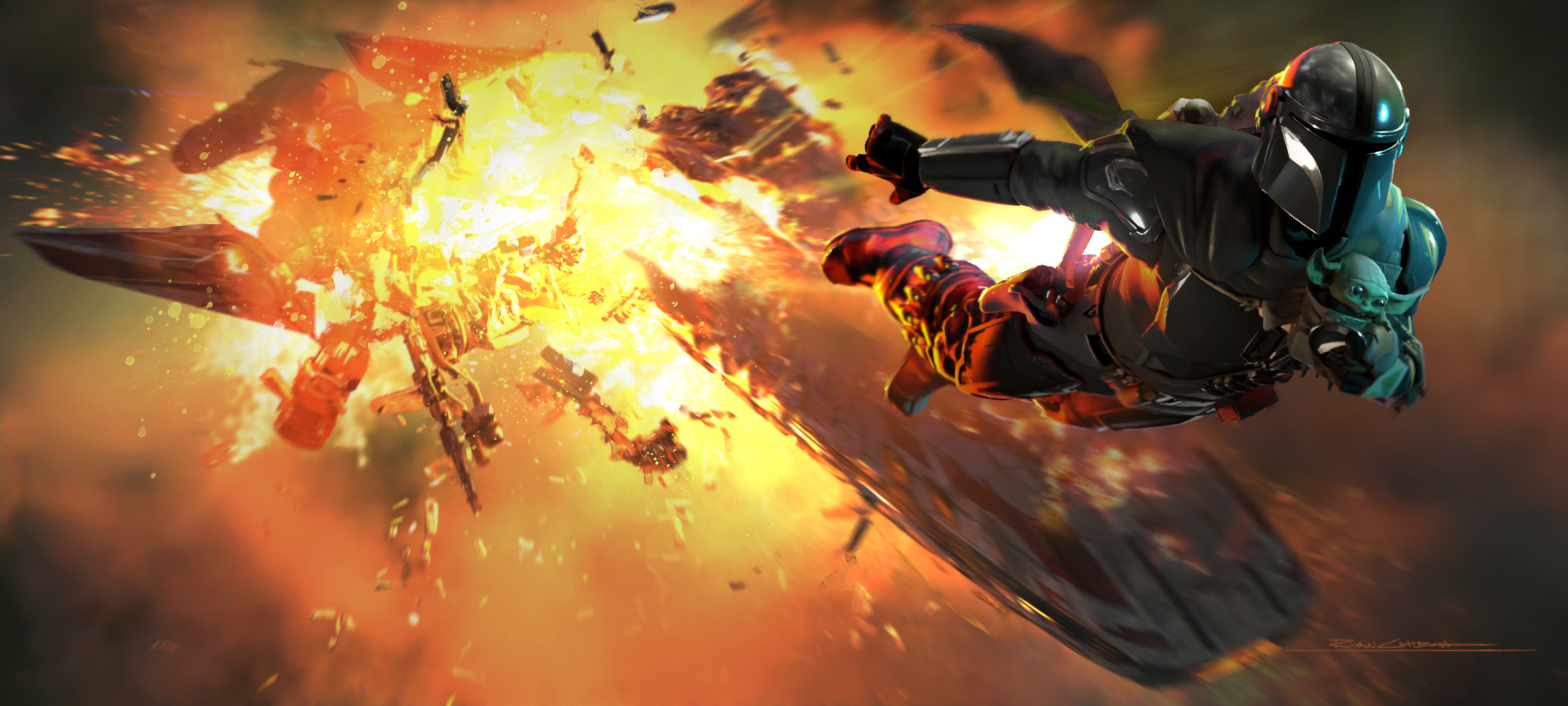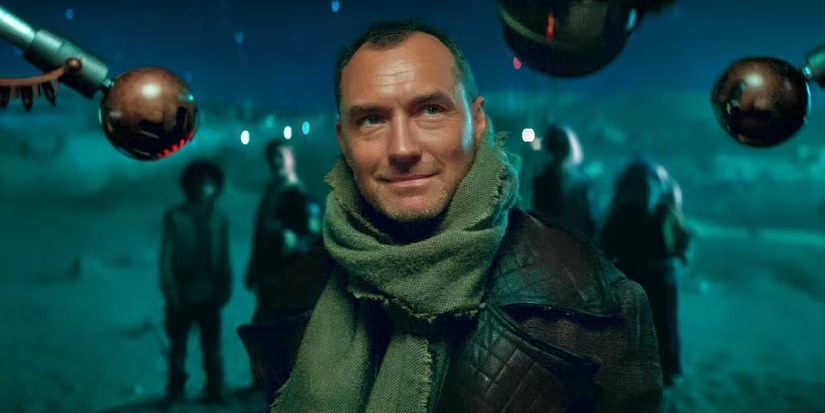![]()
It’s taken a few years, but we’re already less than two months away from the next entry in the “Star Wars” franchise. Like many fans, I’m crossing my fingers that nothing ridiculous or tragic will happen to me in the next month and a half. I just need to make it December 18th. It being so close to the film’s release, Disney is starting to unleash its media Blitzkrieg onto the world with all things “Star Wars,” and included in that barrage of content is an interview with Wired.
In that interview, director J.J. Abrams reveals a lot of details regarding the filmmaking process of “The Force Awakens” that will be sweet nectar to the ears of fans all around the world.
First off, Abrams discussed the balance in making a film that was both wholly satisfying, and a setup for things to come.
“We wanted to tell a story that had its own self-contained beginning, middle, and end but at the same time, like A New Hope, implied a history that preceded it and also hinted at a future to follow. When ‘Star Wars’ first came out, it was a film that both allowed the audience to understand a new story but also to infer all sorts of exciting things that might be. In that first movie, Luke wasn’t necessarily the son of Vader, he wasn’t necessarily the brother of Leia, but it was all possible. ‘The Force Awakens’ has this incredible advantage, not just of a passionate fan base but also of a backstory that is familiar to a lot of people. We’ve been able to use what came before in a very organic way, because we didn’t have to reboot anything. We didn’t have to come up with a backstory that would make sense; it’s all there. But these new characters, which Force is very much about, find themselves in new situations—so even if you don’t know anything about ‘Star Wars,’ you’re right there with them. If you are a fan of ‘Star Wars,’ what they experience will have added meaning.”
One of the big deals Abrams also mentioned was collaborating with Lawrence Kasdan, the man who co-wrote “The Empire Strikes Back” and “Return of the Jedi.” In a way, Kasdan is the architect of everything good in the main saga up to this point.
Abrams also laid waste to any concerns fans could have that the film would turn up as disappointing as “Super 8” or “Star Trek Into Darkness”–both good films, in my opinion, but that underwhelmed many fans.
“Working with Larry definitely ties for first in terms of incredible experiences I’ve had with this project. We all take our experiences with us from one project to the next, but in this case, I never looked to draw from my past work. More than anything, I drew on personal experiences as cautionary tales, things that I didn’t want to do again. For example, I didn’t want to enter into making a movie where we didn’t really own our story. I feel like I’ve done that a couple of times in my career. That’s not to say I’m not proud of my work, but the fact is I remember starting to shoot Super 8 and Star Trek Into Darkness and feeling like I hadn’t really solved some fundamental story problems.
The collaboration, for me, was an education in storytelling and doing so with clarity, with efficiency, brevity—wit. It was a little like taking an extended master class. And because he’s also a director, he knew what I was going through in prep and in production, and he allowed for my needs. Sometimes those needs were practical, other times they were creative needs or feelings I had. But he was there to help that process, the same way I would have been if I had known he was directing. It was always about moving this thing forward in the right way, about making this movie the right way. I can’t say enough about him.
So I tried to not forget the mistakes I’d made, but I also tried to focus on things that I find inspiring about cinema. I asked questions like “How do we make this movie delightful?†That was really the only requirement Larry and I imposed on each other: The movie needed to be delightful. It was not about explaining everything away, not about introducing a certain number of toys for a corporation, not about trying to appease anyone. This has only ever been about what gets us excited.”
Abrams also credited Disney for their restraint in the marketing they’ve done–which is uncommon in how little it reveals. The secrecy is usually an Abrams trademark, but according to the filmmaker, Disney spearheaded a lot of those ideas for “The Force Awakens.”
“I give credit to, and frankly surprisingly so, the incredible people at Disney, especially Alan Horn [chair of Walt Disney Studios] and Bob Iger [Disney CEO]. Bob’s been unbelievably collaborative and supportive of this entire process. When it came to marketing, I was expecting Disney to want to put out an overabundance of material. But they’ve been incredibly reluctant to do that. They want this thing to be an experience for people when they go to see the film. And I’m grateful for that.
…We’re walking a tightrope. If you fall on one side it’s no good, because we’re showing too much. If you fall on the other side it’s no good, because we’re not showing anything and we look like arrogant jerks.”
Abrams also discussed his time his working on “Lost,” how the power of restrictions helped form the idea, and how that strategy worked similarly for “The Force Awakens.”
“I find that I am most happy when I have boundaries. With ‘Lost,’ when ABC chairman Lloyd Braun called to say he wanted me to come up with a show about people who survive a plane crash, I remember thinking, “Well, I will come up with that,†and I did—very, very quickly. What was great was he had given me a very specific assignment. So when I called him back and told him my thoughts, they were far weirder than what he would have ever expected. He was basically thinking about doing a kind of castaway show. But the constraint he imposed allowed the weirdness to kind of feel like fertile ground. Weirdness within limits, you know? If it had been un-limited—if he had called and said, come up with a weird show—I would have thought, I don’t know! What does that even mean?
‘Star Wars’ is so boundless in terms of the world, the characters, the conflicts. When we began working on this film, Larry and I started by making a list of things that we knew held interest for us, the things we wanted to see, the things we felt were important. There’s a very real issue with doing this movie: Every detail, whether it was the design of a costume or the music or a set-dressing choice, must be embraced as coming from ‘Star Wars.’ You’re inheriting ‘Star Wars!’ That’s not something you can do lightly. You have to really understand the design choices, because everything is important. At the same time, it’s just ‘Star Wars,’ meaning: It doesn’t make it automatically interesting just because it’s in that galaxy.”
Those are the main bits, but you can check out the full interview at Wired.com. Does any this information give you any more or less confidence in the upcoming film? Let us know in the comment down below!
“Star Wars: The Force Awakens” hits theaters on December 18, 2015.
![]()
![]()
![]()
![]()
![]()
![]()
SOURCE: Wired

 FOR FANBOYS, BY FANBOYS
Have you checked out LRM Online’s official podcasts and videos on The Genreverse Podcast Network? Available on YouTube and all your favorite podcast apps, This multimedia empire includes The Daily CoG, Breaking Geek Radio: The Podcast, GeekScholars Movie News, Anime-Versal Review Podcast, and our Star Wars dedicated podcast The Cantina. Check it out by listening on all your favorite podcast apps, or watching on YouTube!
Subscribe on: Apple Podcasts | Spotify | SoundCloud | Stitcher | Google Play
FOR FANBOYS, BY FANBOYS
Have you checked out LRM Online’s official podcasts and videos on The Genreverse Podcast Network? Available on YouTube and all your favorite podcast apps, This multimedia empire includes The Daily CoG, Breaking Geek Radio: The Podcast, GeekScholars Movie News, Anime-Versal Review Podcast, and our Star Wars dedicated podcast The Cantina. Check it out by listening on all your favorite podcast apps, or watching on YouTube!
Subscribe on: Apple Podcasts | Spotify | SoundCloud | Stitcher | Google Play



